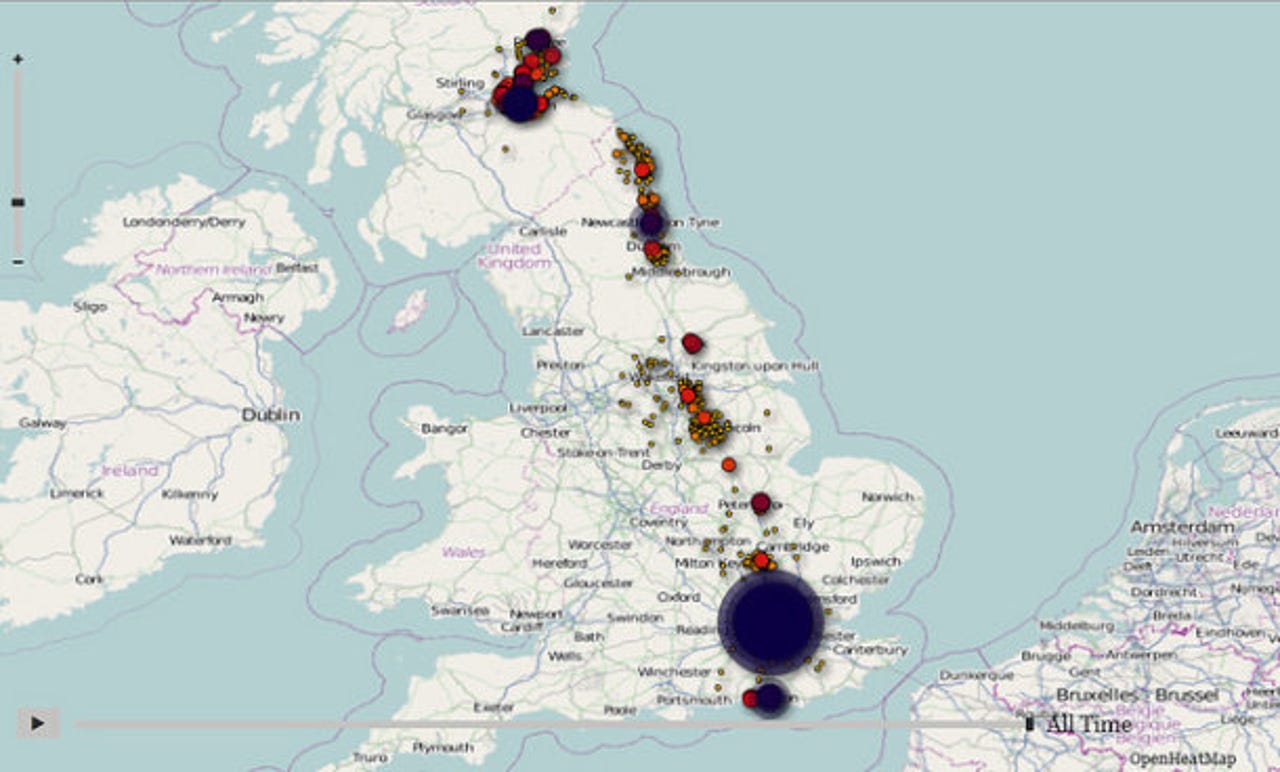Apple fixes iOS 4 location data caching 'bug'

iOS 4.3.3 update cuts stored location data down to size...

One iPhone user's location data since last July - showing their travels in the UKImage: Stan1ey
Apple has issued an iOS update that changes how the iPhone gathers and stores location data.
The update follows a privacy row that erupted last week after security researchers published details of how much location data iOS devices store, and where and how it is stored. The researchers noted that the stored data is typically unencrypted, thereby posing a privacy risk.
The iOS 4.3.3 update reduces the amount of location data being stored, no longer backs it up to iTunes and deletes the data entirely when location services are turned off.
Critics said Apple was effectively tracking the location of iPhone owners but the company refuted this claim in an official Q&A: "Apple is not tracking the location of your iPhone... has never done so and has no plans to ever do so."
The location data, which has been stored since Apple released iOS 4 last summer, includes latitude-longitude coordinates and a timestamp. It is stored on a file on the iPhone and 3G iPad and also copied to a PC when the iOS device is synced with iTunes. The iOS 4.3.3 update reduces the quantity of location data being cached on devices and does not replicate the data on a user's PC.
Responding to criticism about the issue last week, Apple said the location data was being collected to maintain a database of wi-fi hotspots and mobile base stations in each iPhone user's vicinity - rather than always relying on GPS satellite data - so that it could "rapidly and accurately calculate [device] location when requested".
It added that the data should not have been stored for so long or stored when the user had turned off location services on their device. Both issues were "bugs", said Apple, which the iOS 4.3.3 update fixes.
In its Q&A, the company also revealed it is collecting anonymous traffic data with the aim of building a crowd-sourced traffic database to provide iPhone users with "an improved traffic service in the next couple of years".